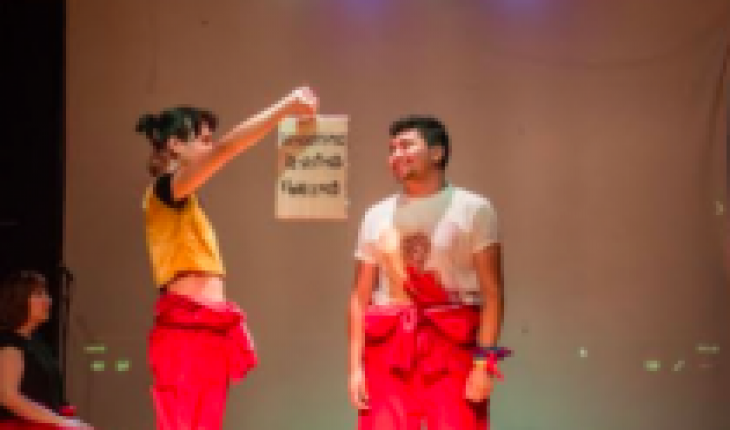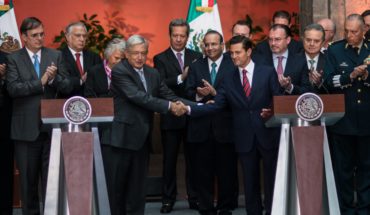
At a recent assembly of the Gremial Association of Cultural Managers of Chile (Adcultura), it was agreed to express its total disagreement with the 2021 Culture Budget Bill, proposed by the Ministry of Finance to Congress.
The guild’s criticism is based on the detailed analysis of its games, the changes involved and the cuts that to varying degrees , they assure – affect numerous collaborating institutions and organizations, funds and/or programs.
“The Managers Cultural we are important actors in the design, implementation and evaluation of cultural programs and policies, both in public and private institutions, in the articulation of the production and dissemination of cultural goods and in sociocultural activation in the territories. Our practices accompany the cultural development objectives of our country and above all represent the guiding principles of the most relevant international declarations of cooperation and cultural development to which Chile has adhered,” they point out.
“Managers work, in multiple ways, in promoting the creation, dissemination of arts and heritage, artistic education as a dynamic of social change, interculturality as a dialogue of knowledge, creative industries as an engine of growth, in strengthening values of non-discrimination and in cultural rights as a fundamental part of human rights, to name just a few of the areas of our interest and professional field.”
That is why they categorically describe that the 2021 Budget Bill for Culture lacks a strategic vision that is consistent with the time Chile is living, the social and health crisis and in line with the degree of development that managers have gradually achieved in the cultural field.
Culture Budget Act
What does the draft cultural budget bring? First bring a Transitional Fund without gloss, warn. “An important transitional emergency fund is announced which, however, is not accompanied by a definition (gloss) that allows us to see clearly and transparently how and to whom it would be directed. AdCultura considers it essential that this fund be administered expeditiously, in a collegial manner through the implementation of a representative body that takes part in its strategic definitions. This will overcome the shortcomings of the emergency approach by 2020 and to focus with relevance and fluidity the only fund available in the budget to contribute in part to cultural revival.”
Second, it includes for the third time a reduction in resources to collaborating institutions: “The budget bill imposes a cut on MINCAP’s collaborating institutions and this time from both undersecretariats. This systematic policy impairs the implementation of the Ministry’s own cultural objectives and policies, directly affecting the citizen’s right to participate in cultural life while weakening institutions that, in addition to their services, are a source of work for a precarious and highly impacted sector, first by the social outburst and then by the pandemic. The role of these varied institutions is of high value, considering above all that they are a bridge between the state and the public, and that they arise built by public policy itself. The same is true of the 48 organizations that host the POIC (Other Collaborating Institutions Programme) program that suffers this year a budget drop of 10%”.
Thirdly, it maintains concursable logic as the main mechanism for promoting: “We see with concern that the main demand of the sector, long consensual by the various working tables implemented by MINCAP during 2020 as well as in the diagnoses raised by CICE (Intersectoral Coordinator Culture in Emergency) and also in the results of the various cultural lobbyists made from the social outburst, they are not reflected in new proposals that involve a paradigm shift in our cultural policy”.
According to Adcultura “true cultural policies can only be sustained when the State is willing to play a leading role in the development of the country”. This role, they point out, which must be raised in the long term, “must enjoy robust tools to influence the promotion of cultural diversity, access to cultural spaces as public goods, decentralizationefforts, and the value of social practices of all the peoples of the nation. It’s time to start giving signs of change, developing a new look at funding culture. The public policies of the 21st century provide numerous mechanisms, tools and procedures that must be assumed by an urgent reform of the law that created MINCAP, whose bureaucratic and political weakness has aggravated the health and social crisis. By way of example, organizations such as those that the POIC (Other Collaborating Institutions Program) has hosted in its public policy are now highly affected, precisely because of the logic of insolvency.”
Regarding The Nation’s budget and culture, the trade union organization argues that “it is important to consider some background when talking about culture cuts. Firstly, while we have taken an important path in public policy of culture since the return to democracy, our investment is still in deficit and is not consistent with the importance of this issue in the sustainable development of a society. On the other hand, the dynamizing agents of our sector are highly precarious workers and off the radar of social policies. Our sector has been committed to the fight to reach 1% investment in culture. In recent years we had seen a stagnation at 0.4%, and the news for 2021 is a drop to 0.3%. This setback is clearly bad news and in particular a discouragement to deal with a political, social and health crisis like the one we suffer. Culture is not a programme of attention to artists but a fundamental area of development of citizens. The true development of a country is to understand that culture is one of its structural axes.”
Finally, they see growth in the cultural area as artificial: “The authorities’ announcement of a 13% budget increase in culture is brought down with rapid reading. This is a “growth” that rests on the redistribution of budgets from other ministerial portfolios and which, in general, return as transfers to the same portfolios. Various culture organizations, and even the congress’s own cultural bench, have agreed that the 2021 culture budget enjoys minimal increase.
The implications of culture cuts:
The implications for the guild are diverse, and all seriously impact the country’s development. The areas that suffer the most cuts in the proposal of the Culture Budget Act 2021 are the Promotion and Development of the National Heritage, Stable Artistic Sets, National Plan for The Promotion of Reading, Network of Public Libraries, Artistic Development in Education, Creation Centers (CECREA), personnel expenses and Collaborating Institutions. It should be noted that many of these institutions, whose management has neglected public input, are also in a crisis that can be irremountable.
The impact of these cuts, they argue, is envisaged first of all in the fulfilment of the citizen right to participate actively in the cultural life of the country, especially in children and young people. Secondly, it affects a large group of collaborating agents of the programs, who arrive throughout Chile, who are cultural managers, artists, technicians and many other workers who participate in the value chain of the sector. Finally, it also jeopardizes the work of direct collaborators, because of possible staff cuts.
“The weakening of the arts and cultural expressions, as well as the instances of encounter and dialogue that these activities bring, involve subtracting quality from common life and promoting social phenomena of apathy and negativity,” they say.
Dismay at the role of the National Council of Cultures, Arts and Heritage:
Finally, Adcultura emphasizes that “we cannot fail to say that we look with dismay at the passive role that our main collegiate body has exercised. The history of our young institutionality is marked by the stated yearning for participation. Chile is living, without a doubt, a historic moment, triggered in October 2019 with the social outburst that involved an immense active participation of its artists, creators and citizens, but it has also experienced very difficult moments when we have seen how human rights have been violated and the reality of the workers of the culture has been precarious. In this context, the Council of Culture has been a space without an autonomous voice and far from reality. It is urgent that we reformulate an organ that was CNCA, providing it with better bonding and representativeness tools.”





